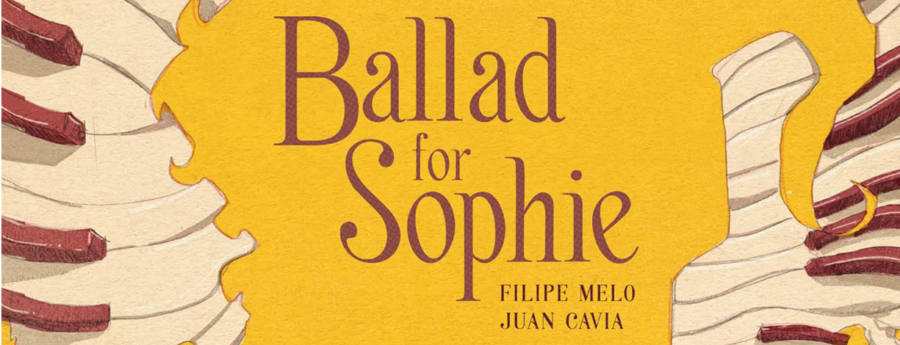 By Thomas Velissaris
By Thomas Velissaris
Ballad for Sophie by Filipe Melo (Author) and Juan Cavia (Illustrator), is a story about people and their personas, about egos and alter egos. It is about hiding one’s self behind a mask both to avoid and to reveal the truth; to reveal the true self. And the more the mask is firmly attached to one’s face the more it needs to break. It is a graphic novel of exceptional sensitivity, exposing the traumas emerging from life, death, and human encounters. It is also a study about parenthood, boyhood, and girlhood. I have read it twice in one month and I am still shivering with mixed emotions; it feels like I have met a great work of art where Marcel Proust meets Thomas Mann for a creative afternoon discussion in a Parisian café.
A young journalist meets a great pianist for one, maybe his last, interview. His name is Julien Dubois. Or at least that was his name until he encountered his alter-ego, Francois Samson. In a piano competition Francois is acknowledged as a child prodigy; but Julien wins the prize because his abusive mother uses her own ways to make her son win. And driven by the tragic guilt of stealing the prize from his legitimate owner, Julien gradually dives into the depths of human de-identification, doomed to begin a life of lies, self-loathe, but also of self-discovery. He becomes somebody else, the total opposite of the famous classical pianist Francois Samson, the total opposite of what he himself always wanted to be; he becomes the famous, millionaire, soft – song pianist, Eric Bonjour.
Revealing the secrets of his life to the young journalist, Adeline Jourdain, we gradually experience a turn to our feelings about Julien Dubois, or Eric Bonjour. And what was really easy to judge (as a narcissist persona who doesn’t really care about anything) becomes a feeling of sympathy, and even empathy. We can easily recognize our struggle in becoming ourselves. We can easily empathize with a person(a) struggling to accept the human condition. We are always incomplete, in a process of becoming, changing masks until the authentic face scarred by the marks of age, redemption, and wisdom, is revealed. As Julien hides himself behind Eric, so we as readers at some point did, or still doing in a way. We are avoiding the responsibility of accepting our incompleteness. Eric becomes eventually Julien. The old, sick, Eric gives his place gradually to Julien; acceptance and forgiveness. But Julien is not the only one hiding behind a persona. As the pages turn, we realize that in this remarkable book, identities are flowing.
In this story, what seemed real reveals as a lie, as a way for the people (and a cat!) to protect themselves from the truth. Being human is a way of accepting mistakes. Living is realizing that we are humans: in a constant process of change and acceptance, in a constant process of acknowledging the responsibility of being incomplete. Do not lose –any- opportunity to read this wonderful piece of graphic storytelling. It will help you to accept change and fluidity. At least that is what happened to me.
*Unfortunately, the Vaasa City Library (or other libraries in Pohjanmaa) does not have this graphic novel on their shelves, as far as we know. But you still have options 🙂 You can always go to your nearest municipal library and request an interlibrary loan. Or ask libraries to buy the book if you think they should have it. If you are a student at a university around here, you can surely request also an interlibrary loan through Finna. Or get the book at your favorite bookstore. Wish you a good reading!
Tab 1
Tab 2
Tab 3








